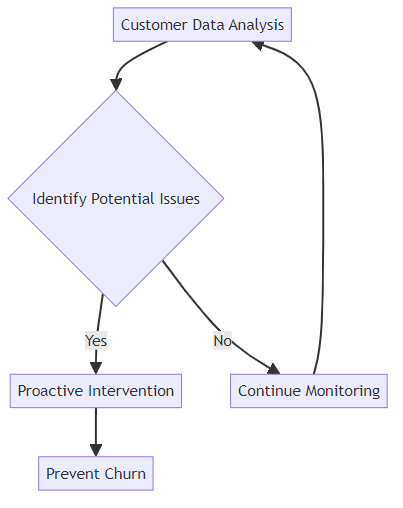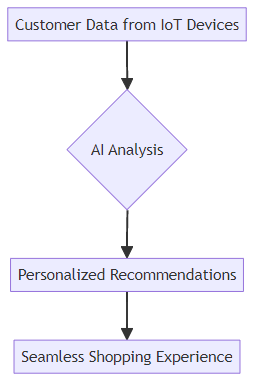Revolutionizing Social Commerce: How AI is Transforming Content Creation and Customer Experiences
The Rise of AI in Social Commerce: A New Era for Content Creators
ai is rapidly changing how content creators work, offering new ways to engage audiences and drive sales. But how exactly is ai reshaping the social commerce landscape?
Social commerce is more than just selling products online; it's about creating engaging shopping experiences within social platforms. Social platforms like Instagram, TikTok, and Facebook are becoming vital sales channels. Consumers increasingly rely on social media for purchasing decisions.
As defined by Gladly.ai, AI-driven social commerce merges social interactions with online shopping, allowing businesses to directly connect with customers on their preferred platforms.
ai is now used in social commerce for content creation, personalization, and customer service. What used to be manual and time-consuming is now automated through ai. Content creators can now scale their efforts and reach wider audiences.
- ai-powered chatbots offer personalized product suggestions by analyzing customer data. For example, ai can recommend products based on past purchases or browsing history.
- Visual search tools let users find products by uploading images or using augmented reality (AR) to virtually try them out.
- ai algorithms analyze social media activity, browsing history, and demographic data to help businesses target the right audience.
In healthcare, ai can personalize content to educate patients about specific treatments. In retail, ai can create virtual try-on experiences for clothing and accessories. Financial institutions can use ai to offer tailored financial advice through social media.
ai is redefining social commerce by making it more efficient and engaging. As ai continues to evolve, content creators who embrace these changes will be well-positioned to thrive.
AI-Powered Content Creation: Supercharging Your Social Media Strategy
ai is revolutionizing social media, and content creation is no exception. Content creators can now use ai to boost their social media strategies.
Are you ever stuck staring at a blank screen, struggling to come up with fresh content ideas? ai can help you brainstorm and overcome creative blocks.
ai tools can generate social media captions, ad copy, and even blog posts. This helps you maintain a consistent online presence.
- Content Ideas: ai algorithms can analyze trending topics and suggest relevant content ideas. For instance, in healthcare, ai could suggest educational posts about seasonal health concerns.
- Caption Generation: ai can generate engaging captions tailored for different platforms. For example, it can create short, catchy captions for Twitter/X and longer, more detailed captions for LinkedIn.
- Ad Copy: ai can produce compelling ad copy by analyzing successful ad campaigns. For example, it can craft targeted ad copy for financial services promoting new investment opportunities.
Struggling to create engaging social media content? Social9 offers ai-powered generation, smart captions, hashtag suggestions, and content templates to help you create posts that drive engagement. With 24/7 support, Social9 is your all-in-one solution for social media content creation.
ai can help you create stunning visuals for your social media content. This includes image generation, video editing, and graphic design.
- Image Enhancement: ai can enhance product photos by automatically adjusting lighting and removing blemishes. This is useful for retail businesses looking to showcase their products.
- Video Creation: ai can create short-form videos for platforms like Reels and TikTok. For example, it can generate engaging videos promoting new menu items for restaurants.
- Graphic Design Assistance: ai can assist with graphic design by generating design templates, suggesting color palettes, and even creating simple logos or banners. For instance, a small business owner could use an ai tool to quickly generate a visually appealing graphic for a flash sale announcement, choosing from pre-set templates and letting the ai suggest font pairings and layouts. Tools like Canva's Magic Design or Adobe Express's ai features offer practical applications here.
ai can help you optimize your content for maximum engagement. This includes hashtag research, audience analysis, and content scheduling.
- Hashtag Research: ai can identify trending hashtags to increase content visibility. For example, it can suggest relevant hashtags for a new fitness program, helping it reach a wider audience.
- Audience Analysis: ai can analyze audience engagement to tailor content accordingly. For example, it can identify the types of posts that resonate most with followers, allowing you to create more engaging content.
- Content Scheduling: ai can schedule and publish content at optimal times for maximum reach. This ensures that your content is seen by the largest possible audience, boosting engagement.
Personalized Customer Experiences: AI's Role in Building Loyalty
Did you know that personalized experiences can significantly boost customer loyalty? ai is now playing a crucial role in making these experiences a reality, transforming how businesses interact with their customers.
ai enables hyper-personalization by analyzing vast amounts of customer data. This includes browsing history, purchase patterns, and social media activity. ai then uses these insights to create customized shopping experiences tailored to individual preferences.
- ai-powered chatbots offer personalized product recommendations, enhancing customer satisfaction and driving sales. For example, ai can recommend products based on past purchases or browsing history, making the shopping experience feel more tailored to individual preferences, as mentioned earlier.
- ai algorithms can analyze user behavior on social media to offer personalized product suggestions. Platforms like Instagram and Pinterest use ai to recommend products based on user activity, enhancing the shopping experience.
ai chatbots and virtual assistants provide 24/7 customer support, resolving issues quickly. According to Zendesk.com, 51 percent of consumers prefer interacting with bots when they want immediate service. These bots can handle multiple customer issues simultaneously, ensuring that customers receive immediate assistance.
- ai-driven chatbots can provide natural, human-like conversations at any time, such as over weekends or late at night when your agents are off the clock. These chatbots help agents improve customer support by quickly responding to common questions, freeing up human agents to focus on more complex issues. To handle multiple issues, chatbots often use sophisticated queue management systems, quickly processing incoming queries and segmenting them based on urgency or topic. Their ability to access and process vast amounts of information instantly allows them to provide relevant responses to several customers concurrently without a significant dip in quality.
- ai can act as a virtual assistant, giving new hires real-time tips and feedback while navigating customer service training. For example, ai could analyze a trainee's response to a customer query and then provide specific suggestions like, "Consider adding a phrase like 'I understand how frustrating that must be' to show more empathy," or "For this type of issue, it's best to use a more formal tone."
ai can analyze customer data to anticipate potential issues and proactively address concerns. ai algorithms use predictive analytics to identify at-risk customers and prevent churn.
- ai can use data—like order history, behaviors, and preferences—to anticipate customer needs and identify potential problems. This allows you to generate proactive solutions and improve customer retention.
- By analyzing customer data, ai can identify patterns and predict future interests. This enables businesses to offer relevant products and prevent customers from switching to competitors.

ai helps foster customer loyalty by creating personalized experiences.
AI-Driven Social Commerce Tools: A Content Creator's Toolkit
ai is changing the game for content creators, but are you ready to level up your toolkit? Let's explore how ai-driven social commerce tools can streamline your content creation process and boost your impact.
ai-powered social media scheduling tools are transforming content distribution, think of platforms like Buffer, Hootsuite, and Sprout Social. These tools do more than just schedule posts. They use ai to analyze audience behavior and engagement patterns.
- Buffer: Uses ai to suggest optimal posting times based on your audience's activity and engagement patterns, and can even help draft initial post ideas.
- Hootsuite: Leverages ai for sentiment analysis to gauge audience reactions to your content and can provide recommendations for improving engagement.
- Sprout Social: Employs ai to identify trending topics relevant to your brand and suggests content formats or angles that are likely to perform well.
ai helps determine the best times to post for maximum visibility. This ensures your content reaches the largest possible audience, boosting engagement.
Content distribution across multiple social platforms can be fully automated. For example, you can schedule a post to go live on Facebook, Instagram, and X (formerly Twitter) at the optimal times for each platform, all from a single dashboard.
Leveraging ai-powered analytics is crucial for tracking social media performance. ai identifies key metrics and trends that would be impossible to spot manually.
These tools analyze engagement rates, reach, and audience demographics. The goal is to optimize your content strategy based on real-time insights.
Generating insightful reports is essential for measuring ROI. ai can automatically create reports that demonstrate the value of your social commerce efforts to stakeholders.
ai can help you identify and vet potential influencers. ai algorithms analyze an influencer's audience demographics, engagement rates, and content quality.
- Vetting Process: ai doesn't just analyze data; it uses it to flag potential issues. For instance, it can identify influencers with a suspiciously high follower count but very low engagement rates, suggesting fake followers. It can also detect patterns of inauthentic engagement, like a disproportionate number of comments that are generic or unrelated to the content. By flagging these red flags, ai significantly aids in the vetting process, saving businesses time and preventing partnerships with influencers who won't deliver genuine reach.
- Campaign Measurement: These tools measure the impact of influencer marketing campaigns. For example, ai can track the number of leads generated by a specific influencer's posts.
Influencer outreach and management can also be automated. ai can send personalized messages to potential influencers, track their responses, and schedule follow-ups.
The Ethical Considerations of AI in Social Commerce
Can ai be ethical? As ai becomes more integrated into social commerce, it's crucial to address the ethical considerations that arise. Let's explore the key ethical challenges and how businesses can navigate them responsibly.
Data privacy and security are paramount in ai-driven social commerce. You must address concerns about how ai collects, uses, and protects customer data.
- Transparency is key. Inform users about what data you collect, how you use it, and with whom you share it. For example, clearly state your data practices in your privacy policy.
- Implement robust security measures to protect data from breaches and unauthorized access. Use encryption, access controls, and regular security audits to safeguard sensitive information.
- Obtain user consent before collecting and using their personal data. Give users control over their data and the ability to opt out of data collection.
ai algorithms can perpetuate biases if they are trained on biased data. It’s important to recognize and mitigate these potential biases.
- Use diverse and representative datasets to train ai algorithms. This helps ensure fairness and inclusivity in ai-powered recommendations and content creation.
- Regularly audit ai algorithms to identify and correct any biases. Monitor the performance of ai systems across different demographic groups to ensure equitable outcomes.
- Promote ethical ai practices within your organization. Establish guidelines and training programs to raise awareness about bias and fairness in ai.
While ai can automate many tasks, maintaining a balance between ai automation and genuine human interaction is essential. How can you balance these competing needs?
- Preserve brand voice and tone in ai-generated content. Ensure that ai-generated content aligns with your brand's values and personality.
- Prioritize human oversight in customer interactions. Use ai to enhance, not replace, human customer service.
- Build trust and authenticity with customers by being transparent about your use of ai. Let customers know when they are interacting with an ai chatbot versus a human agent.
By addressing these ethical considerations, businesses can harness the power of ai in social commerce responsibly.
Future Trends: What's Next for AI and Social Commerce?
The future of social commerce is rapidly evolving, with ai at the forefront of innovation. Are you ready to explore the trends that will shape the next era of online shopping?
Imagine stepping into a virtual store where you can interact with products in a 3D environment. ai is making this a reality by powering immersive shopping experiences in the metaverse.
- ai can personalize virtual storefronts by analyzing user data. This includes tailoring product displays to match individual preferences.
- ai enhances customer engagement through interactive AR/VR experiences. For example, customers can virtually try on clothes or visualize furniture in their homes, as mentioned earlier.
- ai algorithms adapt virtual environments in real-time based on user behavior. For instance, if a user spends a lot of time browsing a specific category of electronics, the virtual store might dynamically rearrange itself to highlight related products or offer interactive demos of those items.
What if you could predict the next big trend before it hits the mainstream? ai is enabling businesses to do just that by monitoring social media conversations and identifying emerging trends.
- ai can analyze social media conversations to understand consumer sentiment. This helps businesses quickly identify emerging trends and adapt their strategies.
- ai can predict future consumer behavior by analyzing historical data and market trends. This allows businesses to stay ahead of the curve.
- Businesses can adapt their social commerce strategies based on real-time insights from ai. This ensures that marketing efforts are always relevant and effective.
Soon, your fridge might automatically order groceries when you run low, all through social commerce. The integration of ai with Internet of Things (IoT) devices is creating seamless shopping experiences.
- ai can personalize product recommendations based on real-world interactions. For instance, a fitness tracker could suggest workout gear based on your activity levels.
- ai helps create connected social commerce ecosystems. This allows devices to communicate with each other to streamline the shopping process.
- IoT devices can provide valuable data to ai algorithms, enhancing personalization. This ensures that product recommendations are highly relevant and timely.

These future trends highlight the transformative potential of ai in social commerce. By embracing these innovations, businesses can create more engaging and personalized experiences for their customers.
Getting Started with AI: Practical Steps for Content Creators
Ready to harness the power of ai in your social commerce strategy? It's time to take the plunge and integrate these tools into your content creation process. Here are practical steps to help content creators get started with ai.
Begin by defining clear objectives for your social commerce efforts. Are you aiming for increased sales, greater brand awareness, or enhanced customer engagement?
- Set measurable Key Performance Indicators (KPIs) to track progress and Return on Investment (ROI). For example, monitor conversion rates, engagement metrics (likes, shares, comments), and website traffic from social platforms.
- Align your ai implementation with your broader business strategy. Ensure that ai tools support your overall marketing and sales goals, such as targeting specific demographics or promoting particular products.
Selecting the right ai tools is crucial for success. With a plethora of options available, it's essential to research and evaluate different ai-powered social commerce tools.
- Choose platforms that align with your specific needs and budget. Consider factors like image enhancement, caption generation, and content scheduling.
- Look for ease of use, scalability, and integration capabilities. Ensure the tools can seamlessly integrate with your existing social media platforms and workflows.
Embrace a culture of experimentation and continuous improvement to get the most out of ai. Track results and make data-driven adjustments to your ai strategies.
- Stay up-to-date with the latest ai trends and best practices. The field of ai is rapidly evolving, so continuous learning is essential.
- Regularly analyze engagement rates, reach, and audience demographics to refine your content. Tailor your content based on real-time insights to improve performance.
By following these practical steps, content creators can effectively leverage ai to revolutionize their social commerce strategy. With clear goals, the right tools, and a commitment to continuous improvement, you'll be well-equipped to thrive in the evolving landscape of ai-driven social commerce.



